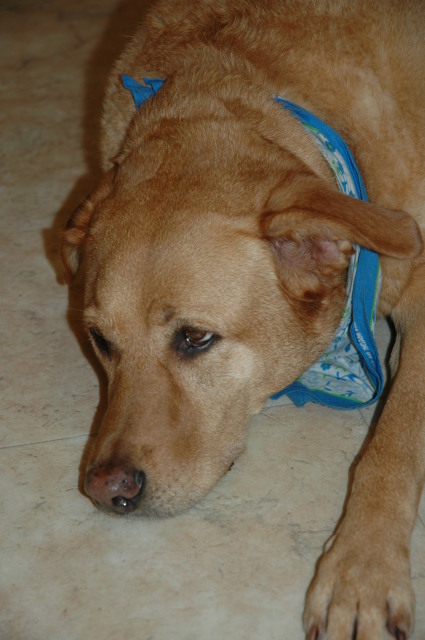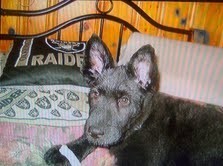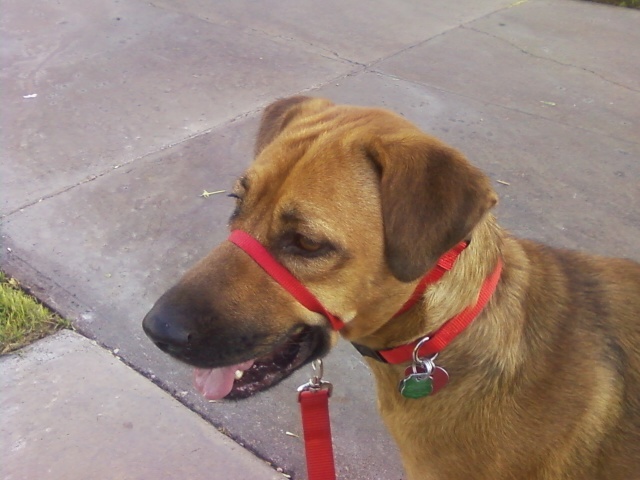QuestionI was told a raw diet was good for my Shitzu. And then a homecooked meal, I was wondering if you could give me some examples of what exactly would be the best FOOD...chicken, beef etc. And I was also told that fatty acids were not good for Shitzu's so I was wondering if you could explain that for me.
AnswerHi Felisha,
Generally speaking, the best food you can feed your dog, is the one your dog thrives on. A good rule of thumb is to buy the best food you can afford.
Feeding a dog the raw food diet, or B.A.R.F (Bones And Raw Food) as it's called is popular, but depending on whom you ask it's either a god-send, or a very bad idea.
If you do any web searches on the subject, you should take into account the source of the information. Are you reading joes-shmoe.com, or the tufts university website? You can read both sides of this very confusing spectrum.
Personally, I see little to no value in an argument such as "we all know dogs have eaten raw meat for millions of years". If pet owners were willing to accept mortality rates similar to wild canines for their pets there would be a lot fewer long term disorders of any type, not just food related ones.
The average lifespan of a wild dog is very short compared to that of a pet dog. We deal with many of the problems of aging in pets because of the success of pet foods and improved health care. Today, dogs are our pets, and don't live in a natural situation and for the most part they are probably better off because of that.
I think the major problem with owner prepared diets is an attempt to satisfy the needs of pets by making one recipe and not varying it. I strongly suspect that if pets were fed a variety of foods that approximates the food triangle suggested for humans that an adequate diet would be obtained. On the other hand, trying to formulate a single recipe that meets the needs of pets long term is very very difficult to do. I think that the major reason to stick with pet foods is the incredible ability of pets to train their owners to feed them unbalanced and/or unhealthy diets. A great many of the pets fed primarily home-made diets or table scraps eat only a few items consistently. Feeding pet foods helps avoid this problem.
Feeding a variety of foods in an attempt to meet dietary requirements is a good idea, as long as you are aware of the pitfalls and avoid them.
There may be benefits from feeding raw meat. Like everything else, you have to weigh the risks against the benefits. There are definite risks. Are you sure of the benefits? If you are having trouble deciding, your best bet would be to talk over your concerns with your vet.
Whether you choose a chicken or beef based diet doesn't matter, it's just a protein choice. What matters is that it has a named protein source (such as chicken or beef), and not just "meat", or "meat by-products". Ideally the meat source is the first ingredients listed. It's the first 5 ingredients listed which make up what that food is primarily made of.
It's good to avoid dog foods that contain BHA/BHT, TBHQ, or Ethoxyquin, these are chemical preservatives linked to tumors and cancer. Instead, look for a food preserved with vitamin E (also called Mixed Tocopherols). Added sugars and artificial flavors and colors shouldn't be present in the food either.
Here is a website that is very helpful in understanding what to look for in a commercial dog food:
http://www.dogfoodproject.com/index.php?page=betterproducts
If your dog is having skin problems, you should probably avoid a diet that contains corn and wheat. Feeding him/her an exclusive diet with a novel protein source (such as Whitefish, Duck, Venison, Rabbit, etc.) from a trusted holistic company, might be worth trying, along with an Omega 3/6 fatty acid supplement.
Fatty acid supplements can help a dog of any breed.
Fats in the form of fatty acids have recently become a popular supplement among veterinarians, and not just those interested in holistic care. First suggested for use in treating allergies in pets, they are now advocated in cases of kidney disease, elevated cholesterol, and arthritis as well. Veterinarians are discovering that fatty acids can be valuable for a variety of conditions. So many doctors now use fatty acid supplements in treating atopic dermatitis in dogs.
You can read more about the use of fatty acids here:
http://www.peteducation.com/article.cfm?articleid=666
If your dog has a bright soft coat, with no skin problems, and has the expected energy level for his or her age, has nice bright eyes, and isn't over or under weight, there's no reason to change it's diet. If you decide that you want to change food, do so gradually, over a period of 5-7 days so your dog won't get an upset stomach or diarrhea from the switch.
I hope I've been a help.
Best of luck,
Patti

 old age dog
Question
he was barking!
I have a Dog who is a german s
old age dog
Question
he was barking!
I have a Dog who is a german s
 Senior dog not eating
Question
Meggie Girl
I will be so grateful if you can h
Senior dog not eating
Question
Meggie Girl
I will be so grateful if you can h
 My miniature pinscher :)
Question
Chanel
I had a miniature pinscher of 8
My miniature pinscher :)
Question
Chanel
I had a miniature pinscher of 8
 what is my dog????
Question
Connie
Patti, i got my dog Connie a few months
what is my dog????
Question
Connie
Patti, i got my dog Connie a few months
 My dog Kiya
Question
Kiya
My new dog Kiya is a 2 yr old German Shep
My dog Kiya
Question
Kiya
My new dog Kiya is a 2 yr old German Shep